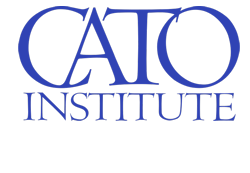Jeffrey A. Singer
Jeffrey A. Singer
According to the Substance Abuse and Mental Health Services Administration (SAMHSA), over 6.1 million people over age 12 have opioid use disorder (OUD). Increasing access to OUD treatment would reduce the number of people who seek drugs in the dangerous black market and, in turn, reduce the risk and incidence of overdose deaths.
In the United States before 1972, primary care physicians would prescribe methadone to people with OUD. Since 1972, however, only government-approved opioid treatment programs (OTPs) have been allowed to dispense methadone to treat OUD. SAMHSA places regulations and restrictions on organizations that seek to operate OTPs. OTPs must obtain certification from the Drug Enforcement Administration (DEA) to operate a narcotics treatment program. States must also license OTPs, imposing additional regulations, costs, and restrictions.
The various layers of regulations hinder the proliferation of OTPs. These and other government obstacles explain why only about 400,000 individuals with OUD received methadone in 2019, while 1.6 million US residents reported developing OUD that year. Recognizing these barriers, Congress has attempted incremental reforms. For the past few sessions of Congress, the bipartisan Modernizing Opioid Treatment Access Act (MOTAA) has failed to pass. If enacted, MOTAA would expand access to methadone treatment by allowing board-certified addiction medicine physicians to prescribe methadone in their offices and clinics.
However, President Donald Trump’s February 19 executive order implementing his “Department of Government Efficiency” Deregulatory Initiative provides an opportunity to expand access to methadone treatment for people with opioid use disorder (OUD). Seizing on this deregulatory momentum, the American Society of Addiction Medicine (ASAM) has spearheaded a letter to Attorney General Pam Bondi and Acting DEA Administrator Derek Maltz, calling for a review of methadone treatment regulations. The letter argues that these regulations are “not based on the best reading” of the underlying law and “constitute a significant regulatory action that materially harms competition in health care delivery.” The American Society of Health-System Pharmacists, » Read More
https://www.cato.org/blog/new-methadone-playbook-how-doge-deregulation-can-save-lives






